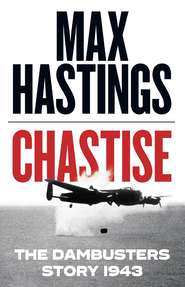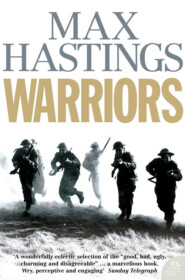По всем вопросам обращайтесь на: info@litportal.ru
(©) 2003-2025.
✖
Country Fair
Автор
Год написания книги
2019
Настройки чтения
Размер шрифта
Высота строк
Поля
None of this diminished in the smallest degree my misery and terror about being removed from Rutland Gate SW7 to a punishment camp in Berkshire named Horris Hill. There, prowess on the playing field was the only virtue deemed worthy of applause, and certain masters did not trouble to conceal their enthusiasm for the prettier small boys. At the Caprice, when I asked tremulously for an ice cream and was presented instead with a sorbet, I perceived deliberate deceit and collapsed into hysterical sobs. If father had thought to sweeten the bitter pill of Horris Hill with a mere restaurant luncheon, he failed. I was still seething when I boarded the Hogwarts Express.
Yet restaurant lunches persisted on those black days at the beginning of each term. Once we went to Simpson’s-in-the-Strand, where we ate beef off the trolley and my father instructed me on the importance of tipping the carver half a crown. We tried the Ivy, where I was briefed about all manner of writers and literary agents to be seen at the tables, none of whose names meant a thing to me. I much preferred Lyons Corner House in Coventry Street, the huge multiple restaurant complex where we usually patronised the Seven Stars, which served delicious roasts with jacket potatoes for around fifteen shillings (75p) a head. When I first started taking girls out, the Seven Stars got a lot of my custom. I never bothered to ask my dates how they felt about roasts. I just assumed, like many of my generation, that you could never go wrong with meat. The most satisfactory meal I can recall as a teenager comprised a prawn cocktail and a fillet steak, with a second prawn cocktail to follow. ‘I knew you were eccentric when you came in,’ said the waitress gloomily.
In those days I spent about 150 per cent of my weekly income on entertaining girls. At eighteen, I remember giving one of them a notably lavish, overpriced dinner at a restaurant in Swallow Street near Piccadilly Circus named the Pipistrello. She didn’t display the smallest sexual gratitude at the time, but I suppose the evening wasn’t an entirely futile extravagance, since she is now my wife.
The restaurants which won my heart – and for many adult years my custom – were those great fisheries: Wheeler’s in Old Compton Street, the Carafe behind Harrods and the Vendôme in Dover Street. They were owned by an exuberant friend of my father’s named Bernard Walsh, for whom oyster was a middle name. Bernard staged annual seaside parties at Colchester to celebrate the opening of the season, from which his guests returned sick but happy. Father belonged to a notorious lunching group named the Thursday Club, which met every week on the top floor of Wheeler’s, and was regularly denounced by gossip columnists as a den of all manner of misbehaviour. Its star members in the early 1950s were Prince Philip, Baron the ‘society photographer’, actors Peter Ustinov and James Robertson Justice, the Marquess of Milford Haven, mouth organist Larry Adler and Daily Express editor Arthur Christiansen. That they all got very drunk was not in doubt. I am sceptical about whether much else went on. I was put down for the Thursday Club at birth, but sadly it collapsed before I was old enough to participate.
Any day of the week, Wheeler’s was my father’s home from home, and it became mine. The menu boasted twenty variations on Dover sole. My own favourite was Normande, served with a wine and grape sauce. Lunch for two cost about £3 including wine in the early 1960s, and was eaten huddled at tiny tables which became a trifle cramped when two members of the Hastings family were in possession. It was all so wonderfully English. There was no nonsense about nouvelle cuisine at Wheeler’s. Indeed, I am doubtful whether in its heyday any mere foreigner would have got a table.
About now, thoughtful readers may ask: if the Hastings family was skint, how did they manage to do such grand eating? The same way they do now, silly. Expenses. Since both my parents were employed by media organisations, I doubt if they ever paid for a restaurant meal out of their own pockets. We had nothing in banks save overdrafts, but the Lord (Beaverbrook or Rothermere) was always good for a glass of champagne and a lobster. My father’s epicurean masterclasses triumphantly succeeded in one respect. They induced in me an enthusiasm for expensive food which has never faded. Likewise, when I started working and living in a flat on my own, I simply summoned rations by telephone from Harrods. I had no idea how else food might be obtained. The consequence, as you might surmise, was an impressive series of financial smashes in my early twenties. One of them was retrieved only by a handsome legacy from dear old nanny, when she passed on to the great nursery in the sky after seventeen years’ hard labour with the Hastingses.
I once observed at a dinner party in the 1990s that I wished I had discovered back in 1964 or thereabouts that a girl was just as likely to go to bed with you if you bought her a hot dog as if you took her to Wheeler’s. This caused a middle-aged woman to shout from the far end of the table: ‘Rubbish! If a bloke gave me a good dinner, I used to feel I owed him one.’ I said how much I wished that we had met thirty years earlier.
Nowadays, my culinary life has changed out of recognition. In deepest west Berkshire, our family try to be living exemplars of The Good Life. Scarcely a restaurant features in the programme any more. At Hastings Towers we live off the land, though this is by no means a universally popular policy. About once a week, my wife stands by the back gate crying out towards open country: ‘Mr Fox! Mr Fox! Where are you? Come on in!’ This is a demo directed at me. It is designed to emphasise how tiresome Penny finds our chickens, and especially the bother of feeding and watering them. ‘When did you last hear of Marks & Spencer running out of eggs?’ she demands crossly. I find it soothing to see a few hens scratching about in a pen. They may not be very bright, nor very rewarding conversationalists, but if you put layer’s mash in at one end, something useful emerges at the other.
In our rustic domain, the chicken controversy is only one manifestation of a wider debate: how much husbandry can we take? If we profess to be country-dwellers and sportsmen, how far does it behove us to live off the landscape, to bottle and dry and freeze the spoils of chase and garden as our ancestors did? We eat a lot of game. I would be happy to exist on a permanent diet of semi-raw grouse, if others about the house shared my enthusiasm, which they do not. Many women find grouse too gamey. There is also domestic resistance to my views about how long birds should be hung, and to my theory that a few maggots contribute added protein, a view rigorously contested by the European Union in its latest regulations on the marketing of game meat.
I release a lot of the trout I hook, sometimes deliberately, simply because nobody in the house will eat it more than three or four times in a summer. It is a problem with fish that until one tastes them it is impossible to guess how they will turn out. Some are delicious pink things, rich with shrimp, while others prove to have grey flesh, and to taste only of pellets. The latter is bad enough if one is eating alone, sorely embarrassing if there is company. Even salmon cannot be relied upon, unless they are fresh-run. In ignorant youth I killed a lot of stale fish for smoking or fishcakes, before realising that a horrible old red thing will always taste that way, however one processes it. We try to eat every fish within a month or two of committing it to the freezer, before it dries out.
We are fanatical consumers of garden produce, our big extravagance. Even the crudest calculation by most honest amateur gardeners reveals that one could have fruit and vegetables delivered weekly from Fortnum & Mason more cheaply than growing one’s own. I speak as one who has just put in a new fruit cage. Only around 2035 might the strawberries and raspberries grown therein pay back the price of the frame. But that is not the point, as we peasants tell each other. The issues are quality and self-sufficiency.
The quality bit starts looking shaky when we contemplate our asparagus. It is thin stuff compared with the fat, rich stalks from the pick-your-own place down the road. We struggle on, however, pouring onto the soil ever more dung at £65 a load, together with chemical fertilisers in industrial quantities. Cabbages, beetroot, onions, leeks and the rest flourish mightily on our acres and are eaten in bulk. The gardener cheats, however, by leaving every week at the back door baskets groaning with produce from his own allotment, rather in the spirit that Nigella Lawson might display a cake before the camera, saying smugly: ‘And here’s one I prepared earlier.’ He is especially eager to produce earlier samples of species which I have planted with my own hands. This twists the knife, or rather the trowel, about my horticultural limitations. In a cynical moment, my wife suggested that we could simply get the gardener to maintain regular deliveries from his own patch, saving the expense of doing our own tillage as well. Shame on her.
My favourite technical innovation, purchased four years ago, is an apple press. Every season now, we squeeze and freeze about forty litres of apple juice, lovingly stored in plastic milk containers. As I point out, this also saves the gardener from having to clear up thousands of windfalls. As Penny points out, however, using an apple press requires physical effort matching that of child labour in a coal mine circa 1840. I am bathed in sweat after an hour of turning the great screw, manhandling the truckloads of fruit needed to produce a litre or two of juice. I find the process therapeutic, pleasingly Hardyesque. Others, however, gaze wistfully down the road that leads to the supermarket as they mop their brows in the autumn sunshine.
We are self-sufficient in firewood, thanks partly to fallen branches, and partly to the fact that we don’t use a lot when we cuddle the Aga all winter. Like most men, I thoroughly enjoy an outing with a chainsaw and a chunk of fallen timber, though at least once a season I give myself a fright, using the saw up a tree. There was a delicate moment when I severed a big ash limb. As it plunged to the ground, the lightened butt sprang upwards, trapping my arm between itself and a rung of the ladder on which I stood, twenty feet above the ground. It took a lonely ten minutes to disengage myself, during which I contemplated my immortal soul, and reflected that these experiences are not quite so bracing at fifty-something as they seemed at twenty-something. I got no sympathy indoors, either.
Most of us get lazier with the passage of years. I no longer make my own sloe gin, nor point chimneys, hang wallpaper or demolish pigeons in the garden with a .22. The more expensive tools I install in the workshop, the less likely I am to use them for ambitious woodworking of the kind I enjoyed thirty years ago. Yet it still gives pleasure to see things around house and garden which one has built or repaired with one’s own hands. The consequence of a childhood during the rationing era is that I never feel entirely comfortable about the state of the household, unless it is provisioned for a siege. In my complacent bed at night, I go to sleep counting not sheep but game in the three freezers, poised in the epicurean waiting room en route to my plate. I do not despair of learning to pot my own shrimps. We would have to call our Hastings Towers version The Quite Good Life rather than the whole package, but we do our rustic best.
7 Duffers’ Days (#ulink_a0218009-f2fe-5e24-b1f7-1fe8d89367f2)
NOT LONG AGO, I watched a young girl cast a fly on a Scottish salmon river. Her line fell in a bundle amid the stream, and straightened only five, ten seconds after landing – which of course meant that it was unlikely to impress a fish for half the time it was crossing potentially active water. My heart bled for her. Yet I need not have worried. She caught a fish. This turned my mind to a general question. We know that a good dry fly trout fisherman will always catch more than a bad one. Unless one is plying a river in the mayfly season, or addressing oneself to tame fish lately released, the fine caster prevails over the coarse one, because presentation is all.
Yet different rules apply to salmon fishing. Again and again, we see novices and indifferent fishers achieving startling success. I have been a beneficiary myself. Many years ago in Sutherland, I remember looks of pained disgust on the faces of others in the party, who were enamoured neither of my company nor of my casting, as they saw me land an indecent number of salmon. For sentimental reasons I was fishing with a huge old greenheart Hardy of my father’s. Returning with a fish one night, I heard a fellow-guest mutter disgustedly: ‘And with that rod, too.’ In short, I was lucky.
Luck can carry an incompetent fisher a long way on a smallish salmon river, with good water. A long cast is seldom necessary. Most beats contain pools dominated by rushes of fast water, which will rectify a poor cast very quickly, whipping the fly round into touch. Maunsell, author of one of my favourite sporting books, The Fisherman’s Vade Mecum, urges that one should never retrieve a bad cast, but leave it to complete its course. That cast can never be exactly repeated, he observes. Every now and again, however unjustly, a tangle of line will catch a fish, because some whim of the water will advance the fly in a tempting fashion. I follow Maunsell’s advice religiously, and never try to recover a poor line.
On a big river a better caster will usually catch more salmon, because he or she will cover more taking places. On the Tay not long ago, in a nasty wind, telepathically I knew exactly what my boatman was thinking: ‘Unless that big bugger can throw a better line than this, he won’t catch many fish here.’ He was right. I landed a grilse which took in streamy water directly behind the boat, but my attempts to cover a distance remained unconvincing. The salmon thought so, too. One is sometimes rescued by a wind, which can flatter casting outrageously. But it is a wry law of fishing that most winds blow the wrong way. It is dispiriting to see flies whipped round behind the line, and not infrequently knotted as well. Those are the moments when I hate suffering under a gillie’s eye. Alone, I can sometimes sort myself out, and make the best of a bad blow. With sceptical eyes present, however, I can never do so. Worst of all in these circumstances, the gillie finds an excuse to take the rod himself for a moment, and flicks the fly effortlessly across the flood as if that accursed zephyr did not exist. Those are the times when I am tempted to take up bowls.
At low water, the quality salmon fisherman comes into his own. The duffer is confounded. When the flow dwindles, the river shrinks to expose acres of rocks and pebbles on the bed, the man and woman who know what they are doing can achieve amazing results, while the rest of us are put in our places. It is an object lesson to watch a really gifted caster place a fly, and move a fish, when we lesser mortals despair of stirring the surface, save to drive salmon into flight. I fished the Naver for many years, sometimes in conditions verging on hopeless. A party fishing the next beat from us never seemed to lack something on the account. ‘The Farquharsons are the best fishers on the river,’ our gillie observed approvingly, refraining from comment upon our own doings. Likewise, I met an exceptionally skilful friend fishing a neighbouring beat of the Naver during a boiling, arid July when our own party had despaired. I found that he had taken two salmon out of a mere puddle of a pool at 6 o’clock that morning. I too was fishing at 6 a.m., but without success.
I recently suggested to Angus, a notably skilful gillie, that in all conditions and all rivers, over a period a good fisher might take 35 per cent more fish than a bad one, casting for the same number of hours. Angus thought that was about right. Contrast this with trout fishing, where a really poor caster is likely to catch nothing at all except maybe in poor light on an evening rise. That guesstimate about salmon fishing also takes account of the vagaries of playing fish which one has been fortunate enough to hook. Of course, someone who instinctively does the right things is more likely to land his catch than one who lets the line go slack, drops his rod point or whatever. But even the finest fishermen lose their share of fish, especially grilse, when these are taking short.
There seems no correlation between the quality of the man or woman behind the rod and the manner in which fish get hooked, and stay that way – with smaller fish anyway. As many gillies will assert that a salmon has got off because it was played too soft, as played too hard. Unless the fisher makes a fundamental error, once again luck seems the principal influence upon the outcome of the contest, though unsurprisingly the bigger the fish, the more likely is a bungler to mess up the landing of it.
A further interesting twist to the argument concerns the matter of morning or afternoon fishing. A gillie whom I respect said the other day: ‘Three-quarters of fish are taken in the morning. If the truth be known, you’re wasting your time casting a fly between one and six.’ Angus said that he himself, when he fishes, only goes out between 6 and 9 a.m. As he catches seventy salmon a year to his rod, which is a lot in Britain these days, I found myself brooding a good deal about what he said.
My gamebook represents the most efficient aspect of my sporting activities, sustained with morbid precision since I was nine. I have been looking back through it, to see how far Angus’s opinion seems justified by my own experience. Here are rough tallies of some British salmon-fishing expeditions over the past fifteen years, from which blanks for obvious reasons are excluded: Tweed five fish a.m., five p.m.; Helmsdale six fish a.m.; Helmsdale three a.m., one p.m.; Helmsdale two a.m., three p.m.; Tweed four a.m., two p.m.; Naver five a.m., two p.m.; Naver seven a.m., four p.m.; Laxford six a.m., two p.m.; Naver six a.m., one p.m.; Laxford three a.m., three p.m.; Naver seven a.m., four p.m.
Examining the afternoon totals more carefully, two-thirds of those salmon were caught after 6 p.m., more often than not because earlier conditions were too bright for convincing fishing. Angus’s views about the merits of taking a doze on the bank after lunch start to sound plausible. It seemed to matter much less on Tweed than on the northern rivers whether one was fishing morning or afternoon. I guess – and as usual with all matters pertaining to salmon fishing, here I am simply tossing out a few ideas to have them shot down by readers from their own experience – this reflects the fact that I fish Tweed during the short late autumn days, while I have usually visited Sutherland rivers in July or August.
I like fishing alone, early on summer mornings, if I know a river well enough to find my way about. There is a special thrill about hooking and landing a salmon without assistance, in playing out a little sporting drama amid the lonely majesty of the surrounding hills. I know some houses which discourage guests from this practice on the grounds that it is anti-social, and upsets gillies who start at 9 a.m. My attitude, however, is that we are there to catch fish if we can. Left to my own devices, all meals including breakfast would be eaten on the river between casts.
Some people also offer practical objections to early fishing – that one loses two or three hours’ sleep to no great purpose, because the salmon seldom wake up much before 9 a.m. I come home from four out of five early-morning raids empty-handed, but the fifth success pays for all. On hot days, there is surely no better prospect of catching a fish than in the hours before the sun climbs high. In October and November, with relatively little time in which to fish, it is not difficult to keep casting from nine to five. My own slender afternoon scores in the summer partly reflect the fact that, more often than not, I fall asleep after lunch. Even when I am casting a fly in the torrid p.m.s, if there is little action, concentration flags. It is in the mornings that one goes at it like a tiger, fishing with deadly intent as long as there is water under the fly. Most fishermen possess an ability to convince themselves that a morning pool is virgin, that the line is touching the current for the very first time in human history. We banish our knowledge that others assaulted the same stretch with equal vigour the previous day, and perhaps night. We see ourselves as pioneers.
By the time we return to the same pools later in the day, as we usually must, that sense of freshness and adventure has gone. We still believe that we might catch a fish. But few of us can contrive to summon up at 4 p.m. the True Believing spirit we possessed at 10 a.m., that we will catch a fish. Most rods are goaded to new exertions in the evening, on rivers where rotating beats change at 8 p.m. or 9 p.m. The belief that fresh fish must have come in since dinner, and that anyway our predecessors on the beat were duffers, provides a powerful incentive. This is especially true of the Helmsdale, where each night the bottom pools of the river, those adjoining marvels the Whinnie and the Marrel, are visited by post-prandial enthusiasts, eager to catch a fish heavy with sea lice, just in off the tide. When I get my own turn down there, I would camp overnight on the bank if I thought I could get away with it. On my final evening of salmon fishing last season, we had people to dinner at the lodge. After they went home, I reflected: at 8 p.m., we had inherited one of the most unpromising beats on the river. Ninety minutes remained until closing time. Everybody else thought I was mad, but I couldn’t resist a cast. Not a fish moved, and the brief darkness was descending. I could scarcely glimpse my fly landing under the far bank. I came home empty-handed, and I am sure I was wasting my time. Angus the gillie would think it kindest to have me committed to some kind of home. Rationally, I am sure he is right. If one confined one’s summer fishing to a few hours every morning, most of us could catch at least 70 per cent of the numbers we land after casting almost around the clock.
Yet it is different for him, because he lives on the river. For those of us restricted to occasional pilgrimages, the only way we know of fishing is to keep alive that glimmer of hope, and a fly on the water, even in the doggiest hours of the summer day. Here is my own favourite thesis about the whole business: over a period, as distinct from the chance of a single day or week, the man or woman who catches most fish will be he or she who has their rod on the water longest in good conditions. What counts most is not that the fisher should be a wizard, but that fish should be present and willing. Unfair, isn’t it?
8 Hit and Miss (#ulink_5ee5d11a-cea6-5099-a0b4-a67a14aa858c)
WE ALL EMBRACE the red-letter days when, miraculously, everything goes right for us. When I am feeling down about sport, I lift my spirits by recalling an idyllic August outing a couple of years back. I shot quite straight. You may say: so what? That is because you shoot straight all the time. But for those of us who spend much of the season throwing lead about the sky with the promiscuity of a bridesmaid broadcasting confetti, an outing on which things really work is cause for trumpets, champagne and rejoicing within the bosom of the family as well in the gamebook.
That day, on a marvellous moor in the north of England, everything went right from the start. First, there was no rain. Anyone who wears spectacles knows that on a seriously wet day, he is doomed. For non-spectacle-wearers who wonder what the experience is like, try driving down the M4 in a thunderstorm without benefit of windscreen wipers. On this occasion, in perfect visibility I hit the first grouse that crossed me – always the start one wants. There was a wind just sharp enough to push the birds along a bit, without making them impossible. A bird flashed past my neighbour, who missed. I killed it behind. After that, a steady succession of grouse came at all angles. I hit some and missed some, but after a couple of drives I knew that I was shooting in a fashion that might not impress Percys or Strakers, but golly, it impressed me.
I made good practice at single birds and small coveys, even quite far out. I did much less well at packs. Try as one will, it is so hard to concentrate on one grouse among forty, to the exclusion of all the others. I recited aloud the familiar mantra ‘Pick your bird, pick your bird,’ every time I watched a cloud of brown bullets lifting over the heather towards me. Yet time after time, I fluffed them when they arrived. One sometimes came down, but seldom two. I killed a lot on my right in front, where I usually miss. Why? Because early in August I went to see Dylan Williams at the Royal Berkshire Shooting School. I fired 150 cartridges at his grouse layout. We quickly established that I was firing behind and above those right-handers. When it came to the real thing, I aimed ten feet in front and two feet below the grouse. Again and again, it fell. Everything is about believing that you know where to point the gun. I never understand why some people are reluctant to go back to school when their shooting goes wrong. How else can one raise one’s game?
Вы ознакомились с фрагментом книги.
Приобретайте полный текст книги у нашего партнера:
Приобретайте полный текст книги у нашего партнера:












